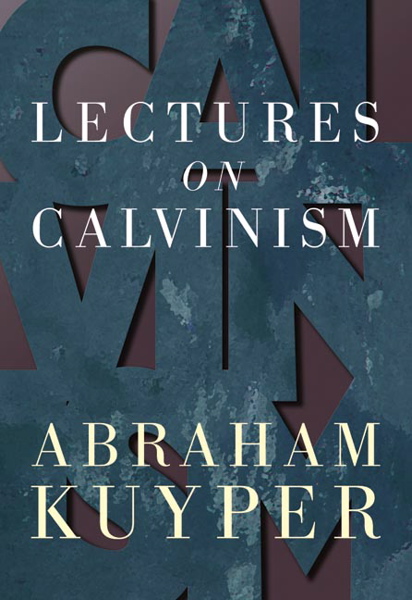A Brief Book Summary from Books at a Glance
About the Author
Abraham Kuyper was a Dutch scholar, writer, and politician. Lectures on Calvinism was delivered at Princeton Theological Seminary in 1898 as that year’s Stone Lectures.
Introduction
Reformed theologian and philosopher John Frame has said that Kuyper’s Lectures on Calvinism “is a book that everyone should read” (A History of Western Philosophy and Theology, p. 514 footnote 4). Kuyper’s thought has been enormously influential in terms of Christian worldview thinking. Lectures on Calvinism is an excellent introduction to the basic contours of his thought in this area. He presents Calvinism as a full life system and worldview, and argues for the necessity of bringing the principles of Calvinism to bear on all areas of life. The lectures are rooted in theological and philosophical reflection. Kuyper argues that Calvinism represents the fullest development of Christian thought and that all of life needs to be structured on its basic foundation.
Table of Contents
First Lecture: Calvinism as a Life System
Second Lecture: Calvinism and Religion
Third Lecture: Calvinism and Politics
Fourth Lecture: Calvinism and Science
Fifth Lecture: Calvinism and Art
Sixth Lecture: Calvinism and the Future
Summary
Lecture 1
Calvinism as a Life System
The Western world is the scene of a great combat between two antithetical life-and-worldview systems. Modernism is based on nature and the autonomy of the human mind, and Christianity is based on submission to Christ. Calvinism is the theological system that most faithfully represents Christianity. The term Calvinism is used with different connotations depending on the context: we will use it to refer to a religious and political system that encompasses metaphysics, ethics, human nature, and political theory, as they are grounded in God. Calvinism began as a particular theology, but it developed into a unique church form and then a comprehensive view of all of human life and society. It allows us to view reality as a unity and it provides insight into the most important relationships of human life, namely our relation to God, our relation to one another, and our relation to the world.
Calvinism maintains that the church does not stand between the soul and God (the way it does in Roman Catholicism). On the contrary, believers are themselves the church. Calvinism, more than generic Protestantism, defends the direct connection between believers and God. Modernism has posited the human relationship to God as something negative—they negate God or redefine and domesticate him because they cannot endure the real Lord. Every general life system is dominated by its view of the human relation to God. In Calvinism, all of human life is to be lived out before God.
Since all of life is lived before God, and all people are both God’s image bearers and sinners, Calvinism places all people on an equal footing. There is no caste or hierarchy. People with gifts should use them to serve. This position is democratic and produces liberty. The modernism of the French Revolution tried to achieve equality, but it was an equality of people against God, whereas Calvinism is an equality of people before God. Calvinism also recognizes the world as…
[To continue reading this summary, please see below....]The remainder of this article is premium content. Become a member to continue reading.
Already have an account? Sign In
